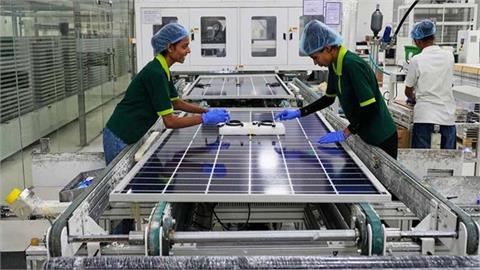Hybrid car sales in Turkey increased 61.5 percent in the first half of 2018 year-on-year, according to Turkey Electric and Hybrid Vehicles Association's (TEHAD) data on Friday.
The number of hybrid cars sold in the first half of 2017 amounted to 1,401, but this quantity raised to 2,263 during the same period this year, TEHAD data shows. The biggest selling hybrid model in Turkey in the first half of 2018 was the Toyota C-HR, which was also the biggest seller last year.
Also in the first half of 2018, out of the total number of 2,263 hybrid cars, the Toyota C-HR took the lion's share with 1,568, compared with 1,203 for the same period last year. The Toyota RAV4 with 161 and the Toyota Auris with 160 followed the Toyota C-HR.
Toyota Yaris continued to lose its share in the hybrid market in 2018. In the first half of 2016, the numbers sold totaled 269, while sales during the same period last year amounted to 85 but for further dropped to 71 for the same period this year.
"Despite losing its share, Toyota Yaris continues to be the most popular second-hand hatchback car in demand," TEHAD noted, adding that the Hyundai Ioniq and Kia Niro, two hybrid models that entered the market in 2017, had a total sales of 236 in the first half of 2018.
- Electric car sales up by 197%
The number of electric cars sold in Turkey in the first half of 2018 increased by 197 percent, from 33 in 2017 to 98 in 2018. Renault Zoe made up the bulk of sales in the electric car market at 73.5 percent in the first half of the year with 72 units - significantly up from the five sold in the same period last year.
The remaining 26 electric cars that were sold were the BMW i3 in the first half of the year, almost the same amount as last year, TEHAV data shows.
"Jaguar I-PACE created tremendous excitement in the electric car market. Being the first and only SUV segment with high technology, Jaguar I-PACE took more-than-expected pre-requests. The model will be delivered as of July to its new owners with a starting price of €88,000, providing a range of 480km, with the ability to reach 100km/h in 4.8 seconds," TEHAV said.
- "More incentives needed"
"The 40-percent [sales] reduction in the conventional car market did not affect the electric and hybrid car market. When we look at the sales numbers in the first half of the year, we can easily see that the interest shown in hybrid models in Turkey gains continuity. The deduction in Special Consumption Tax (OTV) for hybrid cars created an attractive condition for car users in Turkey," the founder of TEHAD and chief editor of E&H Cars Magazine Berkan Bayram was quoted as saying.
Bayram underlined despite the decrease in diesel cars and the corresponding growth in hybrid sales, there is still an urgent need for further drops in motor vehicle tax and OTV for electric and hybrid cars to help create employment and new lines of business.
"Even only one hybrid car manufacturing factory investment sometimes can create a positive effect on the market because we have seen that the automobile market has already adopted different technology and has taken steps toward that technology. Therefore, more incentives are needed in the hybrid and electric car market for both consumers and investors," he argued.
Bayram cited that free-of-charge rights of passage from bridges and highways, free-of-charge intracity carparks, and tax refunds for company cars are some of the examples of these incentives that could be explored.
Anadolu Agency



